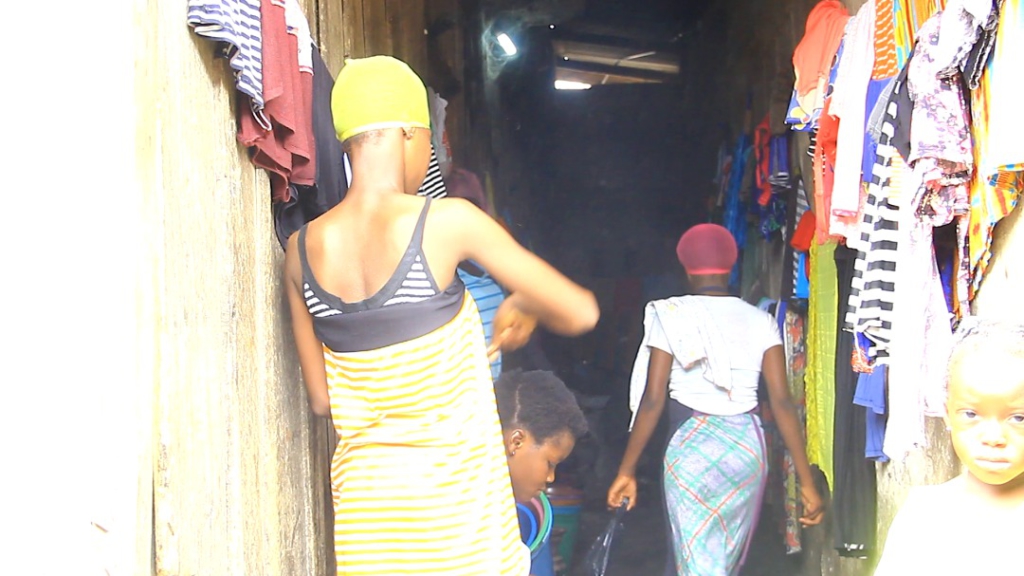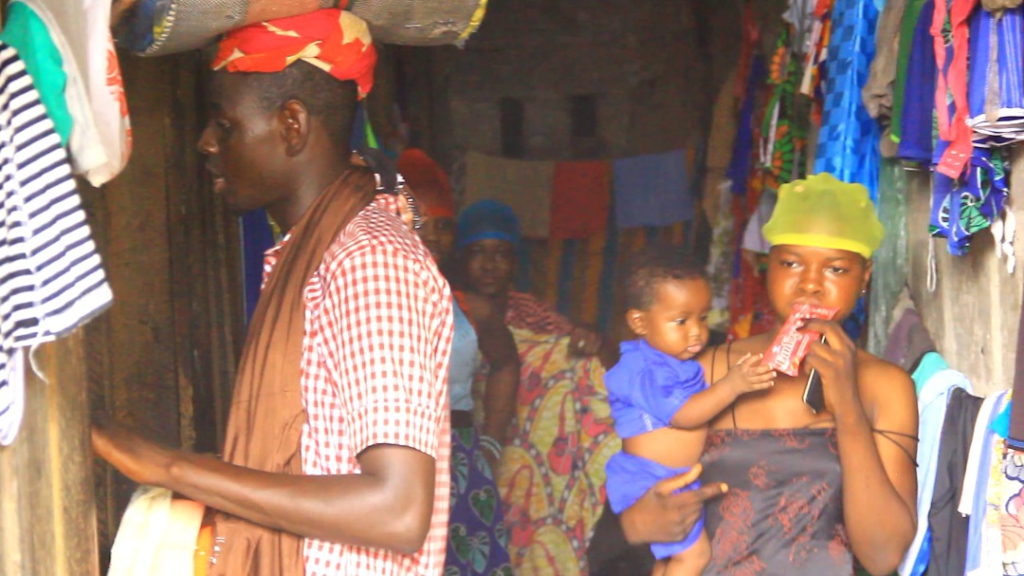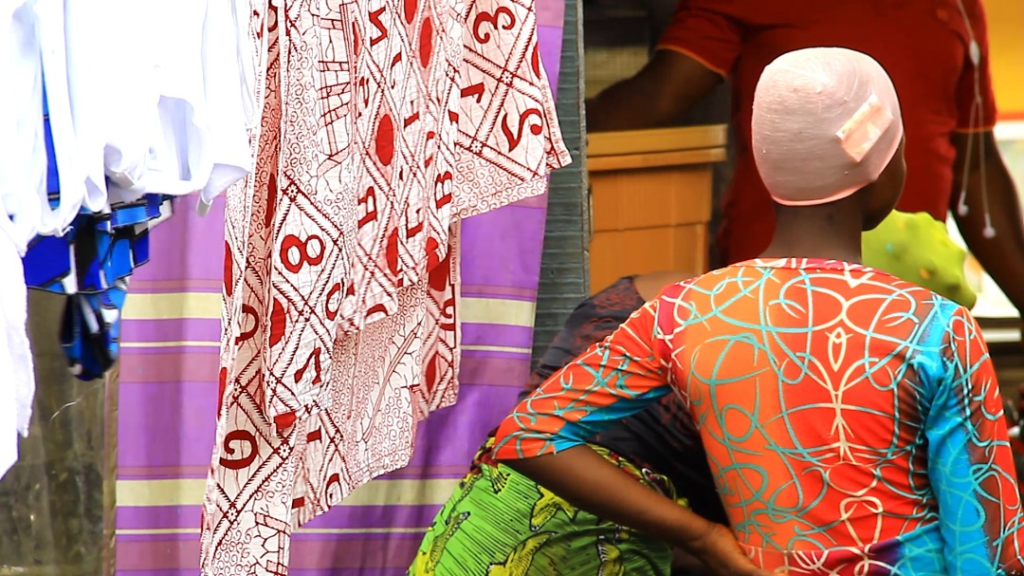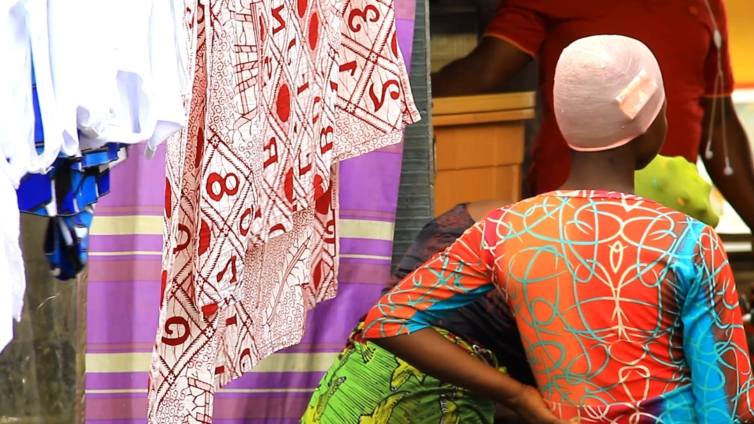Being a teen mom is common at Aboabo Dagomba line in the Ashanti region. Some teen moms are actually married, while others are single.
Many teen moms are lonely, and sometimes men try to profit from them. They dropped out of school for various reasons at very young ages.
These teenage mothers now regret curtailing their education in search of work. Some of them, with one or more children, lament their inability to continue school has caused them more harm than good.

Biibi Abdulai, Mudra Mohammed and Nadiha Alhassan all gave birth at tender ages in a slum they live in. They were enticed with gifts by their children's fathers. Since then, their lives have turned worse off.
At age 19, Biibi Abdulai is already a mother of two. A primary 4 dropout who was betrothed to a man at an early age.
"I would have liked to be able to go school because whenever I see any of my colleagues who continued school, I get sad. I wish I was at their level".

It is becoming increasingly difficult for Biibi to find a sustainable livelihood each passing day.
Hardship and her parents' inability to take care of her brought her to Kumasi from Yamo Karaga in the Karaga district of the Northern region.
Biibi struggles to make her ends meet. "I wish I could get support somewhere to learn vocational training to be self-employed in the future."
Mudra Mohammed has a child. She who left school three years ago. She is now a Kayaye in Kumasi where she carries luggage to survive.
"I regretted it because I would love to be someone someday or a teacher. Every time I pass students I stop and watch them because it always reminds me of my days in schools. I have regretted."
Mudra's inability to comprehend what was taught in class pushed her out of school.

Three years ago, she was in JHS 2 at Zuggu JHS in the Kumbungu District of the Northern Region.
She abandoned education because she did not want to disappoint her parents, perchance after the BECE.
"I dropped out of school was because I wasn't concentrating on my studies. My parents were spending a lot of money so I thought that it was better for me to quit. I drop out of school in JHS 2. Now, I wish I could go back but I can not."
Most girls like her migrate into the cities at an average age of 9 without their parents’ consent.
Nadiha Alhassan is also 19 and has a child.
She and Mudra are on the same page. Their inability to comprehend what was taught in the classroom frustrated them out of school.
"I have also regretted because I would have gotten all I wanted today. I need an organisation to assist me to learn a skill."
Nadiha comes from Yong-duuni, a suburb of Tamale in the Northern Region.
Life was tough for Nadiha and she decided to travel to Kumasi to enrol herself in tailoring. Unfortunately, things are now as she expected them to be.
She wants to use her experience to inspire young girls to focus on their studies. "I wouldn't want my siblings to suffer the same because the cost of living here is very high."
Amina Abass has been in the head potter business for many years. Poverty and lack of jobs in the north is the primary cause of her migration.
She laments how some men in the slum take advantage of their situations to sleep with them, which always leads to pregnancy.
"Poverty is the reason. A man will lie to them that, he will marry them. Until they realize they are pregnant.
Some are too young to decide for themselves. When they see ten cedis, they think they have everything".
"From 18, 17 and even 10 or 9 girls come here to carry luggage. It hurts. They abandon school to come and carry luggage. It is heartbreaking," 32-year old Amina Abass laments. At the slum, it is a case of survival of the fittest.
London-trained psychologist, Zainab Abubakar Fofana, believes creating well-paying jobs in areas where these young girls migrate from could end the menace.
She urges the government to construct vocational training centres that would aid in training the girls.
"Government should establish vocational institutions in communities where these girls come from and enrol them."
Madam Fofana says contracts of schools uniforms should be directed to these institutions to provide some income for the girls. "Some of them can start by stitching, cutting, sewing, etcetera and be paid."
Madam Fofana believes once these girls are engaged with receipt of income, it will deter them from migration.
Amina supports Madam Fofana's suggestion as a sure way to end their plight.
"The government should find something better for them so that they would not come to carry luggage."
Though some of them, would want to go back to shook, there are others who think it is too late for them.
Madam Fofana suggests those who want to go back to school should be supported while those who want to enrol in entrepreneurship should get a support.
"There is still hope for them and their lives can become better than before."
She wants immediate measures taken to reduce the number of young girls migrating to the cities and end up becoming pregnant.
Ghana continues to record higher rates of teenage pregnancy. Recent national report shows that 11% of adolescents aged 15 to 19 years had had a live birth, of which 3% are pregnant with first child and 14% had begun childbearing.
Available statistics show that, about one in ten young females, age 15 to 19 years of age had begun childbearing in the cities while that number is twice as high in rural areas.
Until a permanent solution is provided to these girls, they would continue to carry loads that are harmful to their health, while others continue to rely on men for their livelihood.
Latest Stories
-
Let’s live peacefully and shame our saboteurs – Savannah executives of NPP, NDC
2 hours -
Reconstruction of Agona-Nkwanta-Tarkwa road 80 per cent complete
2 hours -
Internet penetration: 10.7 million Ghanaians offline – LONDA Report
2 hours -
USC cancels grad ceremony as campus protests against Israel’s war in Gaza continue
2 hours -
Harvey Weinstein’s 2020 rape conviction overturned in New York
2 hours -
US Supreme Court divided on whether Trump can be prosecuted
2 hours -
There’s enough justification for Affirmative Action Bill to be passed – Minka-Premo
2 hours -
Don’t allow people to manipulate you into vaccine hesitancy – Dr Adipa-Adappoe
2 hours -
Suspend implementation of Planting for Food and Jobs 2.0 for 2024 – Stakeholders
2 hours -
Parkinson’s disease no longer confined to the elderly – Public Health Physician, Dr Momodou Cham warns
3 hours -
Persons living with Parkinson’s disease appeal for support as they face stigmatization
3 hours -
36-year-old-trader sentenced for stealing employer’s money
3 hours -
9 signs you’re falling in love with someone who thoroughly enjoys emotional manipulation
3 hours -
Catholic Diocese of Keta Akatsi hosts Parkinson’s support group meeting
3 hours -
Wa Naa appeals to Akufo-Addo to audit state lands in Wa
3 hours

